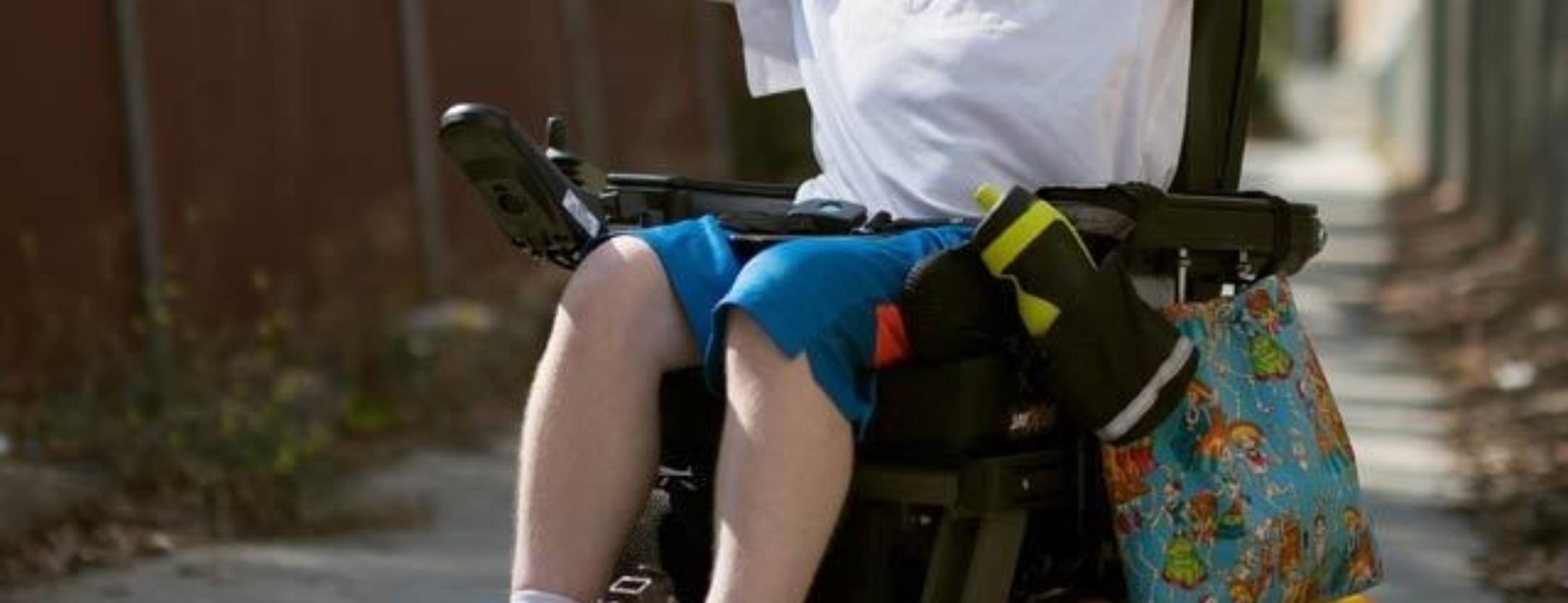Don’t let the wheelchair fool you; Dylan is an aspiring standup comic. Well, a sitdown comic actually. “Uncomfortable?” he asks with a grin. “Get used to it!” Inspiring discomfort with humor is Dylan’s forte, especially since 2004 when he was diagnosed with Duchenne muscular dystrophy (DMD)—the degenerative condition that has claimed much of his ambulatory function but none of his wit.
“When my mom told me I was getting an electric chair, I asked her, am I really that bad of a kid?”
At the young age of 14, Dylan is daring enough to take his comedy on stage; although he'll be the first to admit, it's not easy. “Whenever I'm up on stage I just start sweating and looking away from the audience.” Still, Dylan prefers his solo comedy routine to other types of performance, like the community theater his parents encouraged him to participate in as a kid. “When I was in fifth grade, I was in a play with all ten-year-old girls, and I was like, 'Why am I here?'” He was there, ostensibly, to play every single male character. “It was not fun. It was mean,” says Dylan, with a twinkle of laughter in his eye .
Although he is gaining confidence on stage, Dylan is actually more comfortable behind the camera. His passion for photography and videography is fervent, and is a way for him to spread out beyond his immediate limitations to interact with and relate to what he sees and feels around him. “I like to keep my photos light,” says the cheerful Dylan, demonstrating how his work is an expression of his joy and wonderment about the world. It is through this lens that he can express his love of animals and nature. “I was thinking of working for National Geographic,” he says.
As with most teenagers, there is nothing more important to Dylan than socializing. From behind the camera he participates in activities that he otherwise would be excluded from. Right now, his friends are really into parkour, a stunt-driven form of obstacle course running that exhibits the extremes of the human body's mobility. Dylan may not be able to do all the flips and tricks his friends are attempting, but he still plays an important role. From his wheelchair, Dylan films and photographs his friends leaping and spinning through the air.
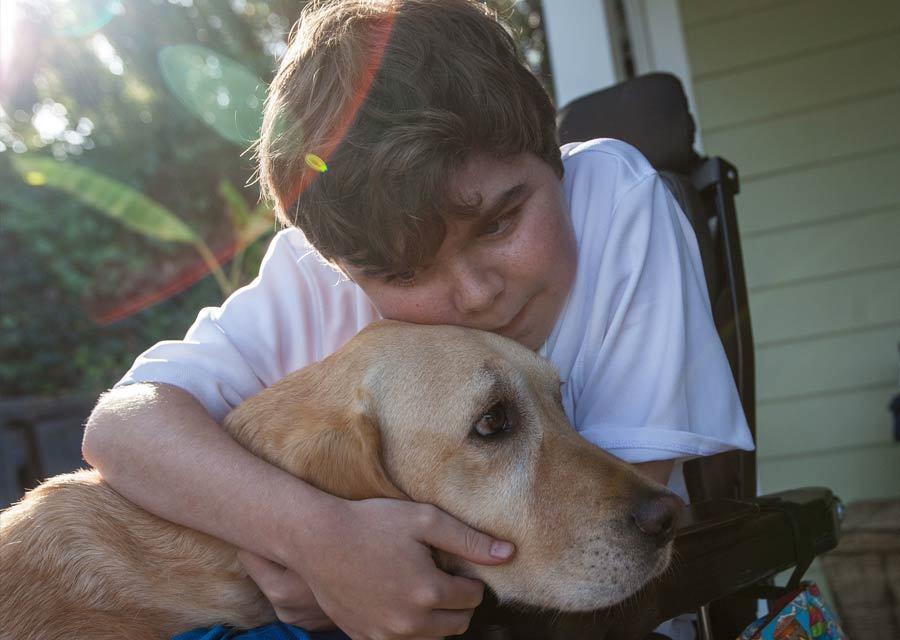
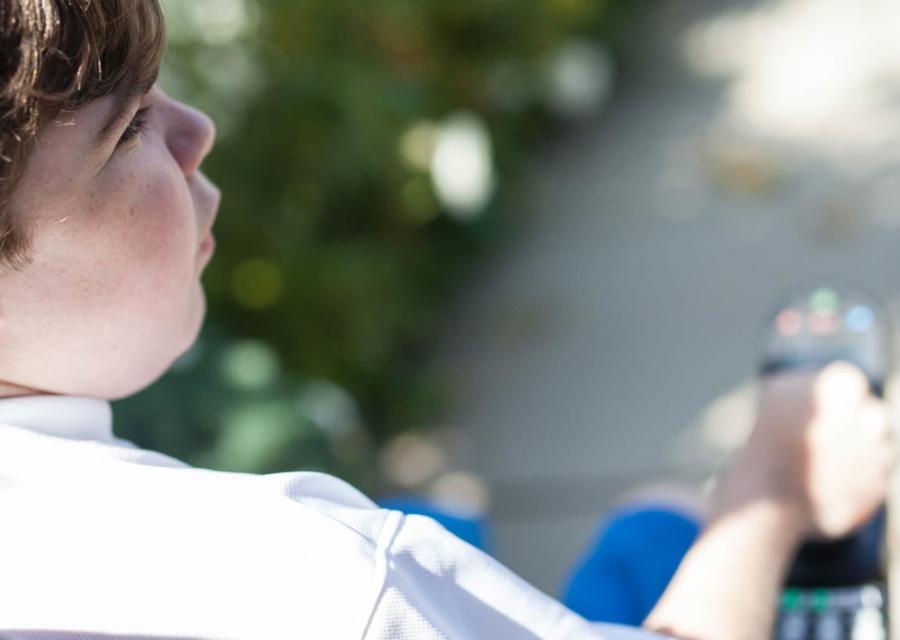
Dylan’s friends also provide him with generous assistance in his daily life. “A usual weekend would be going to the mall with my friends, then having a sleepover,” he says.
“I don’t have that many problems, because usually my friends are super helpful... [They] just want to make sure that I'm okay.” This can be anything from simply picking up a book that he accidentally dropped, to providing a crucial sense of inclusion in a world built for the able-bodied. Still, he inevitably deals with being excluded sometimes, although usually unintentionally. “It’s kind of hard to tell my friends that I can’t go to their party because their stairs are too hard for me to get up.” This exemplifies Dylan's relatively recent loss of walking ability, a milestone that boys with DMD typically reach by their pre- or early teen years.
“It’s hard to tell your friends you can’t walk anymore, when they are used to seeing you walk all the time.”
And of course, he misses playing sports. “It hurts more to play sports and stuff. And that kinda sucks.”
Within the wonderful generosity of friends, few rank higher than Dylan's service dog, Kong. When his older brother moved out to go to college, Dylan wanted a new companion. “One with a little more hair,” he jests. To this self proclaimed animal lover, the prospect of a furry friend was very exciting. “If I could have all the animals in the world, I probably would.” However, it was agreed that a service dog seemed to make the most sense.
Adding a new member to the family is a big deal, but Dylan knew right away that Kong would fit right in. “It was love at first sight!” Now Kong plays a very important role in Dylan’s life. He knows almost 50 distinct commands, including opening the fridge, picking up objects that Dylan has dropped (smartphone, if it ever becomes unglued from his hand), and can even match Dylan with a fist bump. As Dylan admits, Kong is no guard dog.
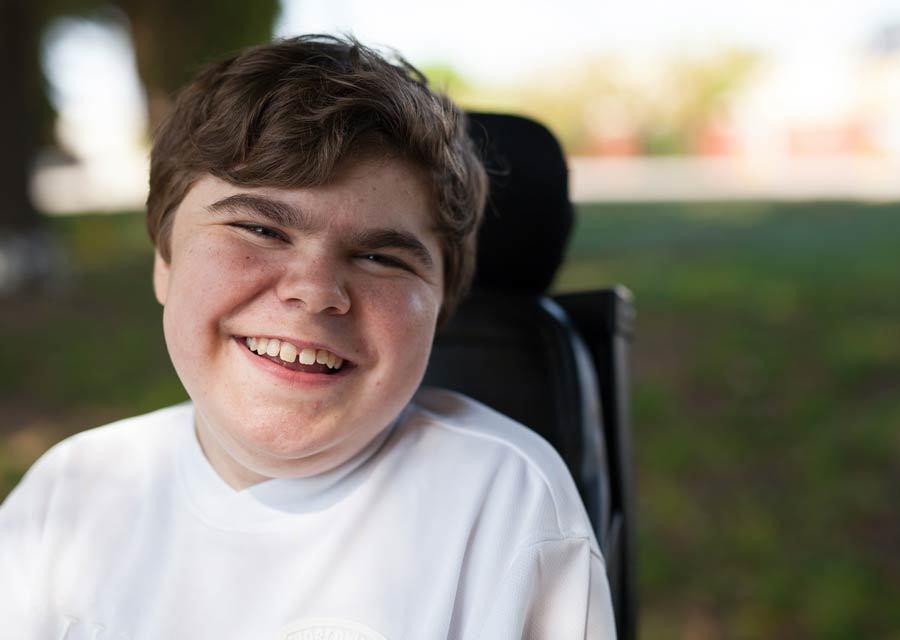
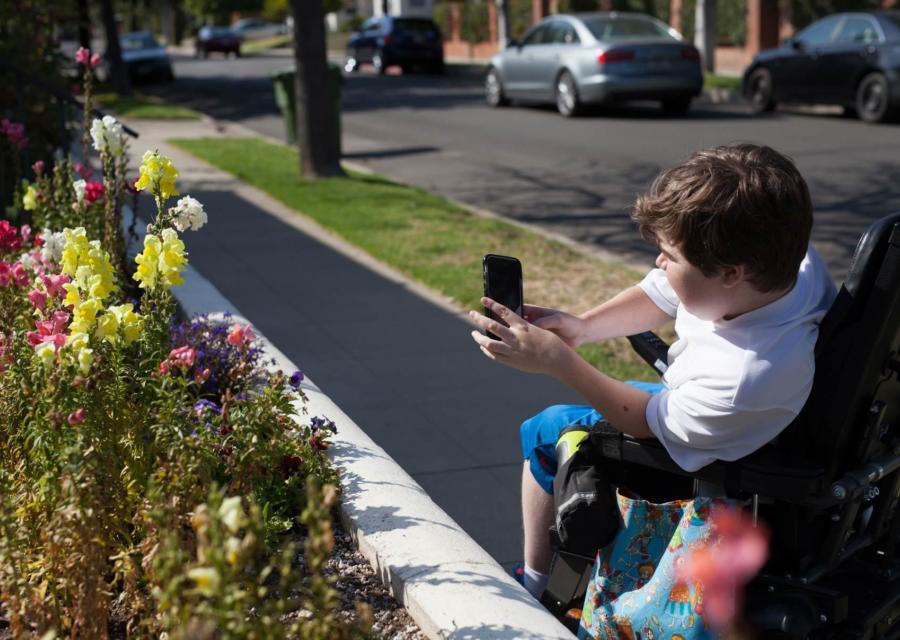
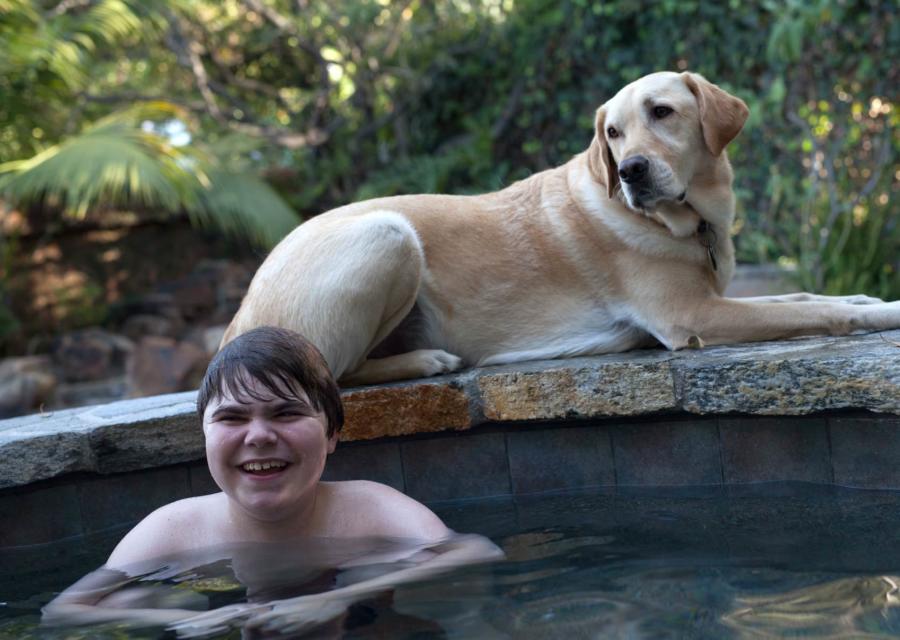
“If a robber broke in, all he would do is start licking him. But he is pretty helpful to me ... especially by giving me love.”
As few dogs are as exceptional as Kong, few parents are as exceptional as Stanley and Carrie. They worked in the field of genetics and medicine at UCLA even before Dylan was diagnosed. Yet, since Dylan’s diagnosis at the age of three, they have shifted all their work to diligently researching new treatments for DMD. Together, they helped start the Center for Duchenne Muscular Dystrophy at UCLA, a center committed to genetic research with ongoing clinical trials in hopes of finding a viable treatment that will eventually win approval from the FDA.
With his parents' decade long dedication to the cause of getting treatment approved for DMD sufferers, Dylan recognizes how lucky he is. “My parents helped me understand what it was,” says Dylan. “Whenever I had a question, I talked to them about it.” With a better understanding of DMD, Dylan can live a fuller life and share his experience with others. “I learned how to conquer a disability,” he says triumphantly.
“You have a disability, but it doesn’t mean the world is gonna end or anything. I think it makes you more confident in who you are as a person, and more empathetic of other people.”
